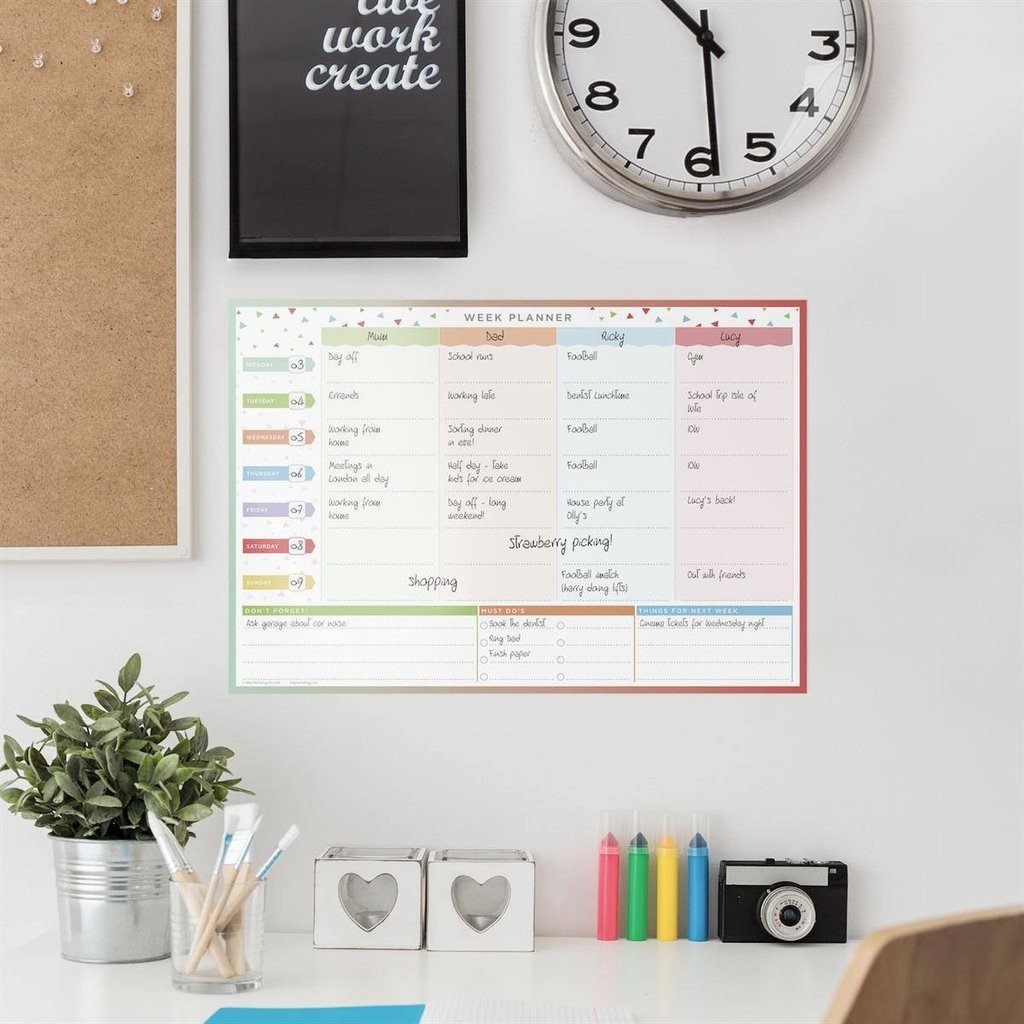Organization strategies are critical to success in school, especially as workloads become heavier and content gets more challenging. As a parent, you can lay the groundwork for a systematic, efficient approach to learning and completing assignments, so that over time your children will learn to use these strategies on their own. You’re raising kids to become adults, right?
Be sure to talk with your kids about WHY they should do what you’re suggesting. Helping them understand the bigger picture can make it easier for them to get on board, and to use strategies to achieve results rather than half-heartedly following what they perceive as arbitrary rules. Good organizational skills can help people work more efficiently (so there’s more free time), learn and remember better (so you do better in school), be more confident and reliable (traits other people generally gravitate toward), and reduce stress (and these days, even kids are stressed out). (Correction: you’re raising kids to become fantastic adults!)
Let’s start with some basics:
- Personal Calendar. Whether it’s paper or digital, kids need to have — and get in the habit of using — a calendar. While it may seem like overkill for grade school students with relatively few assignments, getting in the habit of writing things down is valuable. Encourage them to record tests and due dates, as well as special events and regularly occurring extra-curricular activities. Having a visual reminder can help kids see that if they have soccer practice on Thursday and a big test on Friday, they’ll need to study in advance. In fact, writing in test prep time on the calendar might mean they are spared last minute chore requests. 🙂
- Family Calendar. Having one place where everyone records important events and deadlines can help avoid schedule conflicts. If Alex knows that you expect them to be home when Aunt Myrtle comes for dinner on Friday, they can plan video gaming with friends for another time. Likewise, if Sam’s math test is on the Family Calendar, you can avoid scheduling poker night for the night before. We know Mom, your poker night is important to you, but you can host next week. 😉
- A place to put backpacks, schoolwork and projects. If everything has a place where it belongs, much less time and energy is spent in a last-minute panicked search for it. Put hooks by the door for backpacks, or, if kids need their packs in their rooms for homework, put a hook or a shelf there specifically for that. A shelf for books and papers, and even a simple filing system can help them keep notes and assignments organized and accessible. A few envelope-style folders attached to the wall near their hook definitely counts as a system.
- Communications Center. Taking the concept of the Family Calendar a step further, make a specific place for kids to put homework for parents to review, permission slips to be signed, and so on. Depending upon your space and preferences, this could be on the fridge, on a door, or mounted on the wall in a central location. The kitchen is typically a great place for family communications, because no matter how hectic things get you can pretty much count on your kids to show up there on a regular basis to at least raid the fridge.
- A place to do homework. Teach your kids to think about what’s needed for a particular task: more surface area? Quiet? Music? Some people really do focus better with some background noise (i.e. music), while others need quiet. Helping kids know themselves will pay great dividends when they’re on their own.
In a future post, we’ll offer strategies that can help students organize not just their spaces, but their thinking processes and learning strategies.
